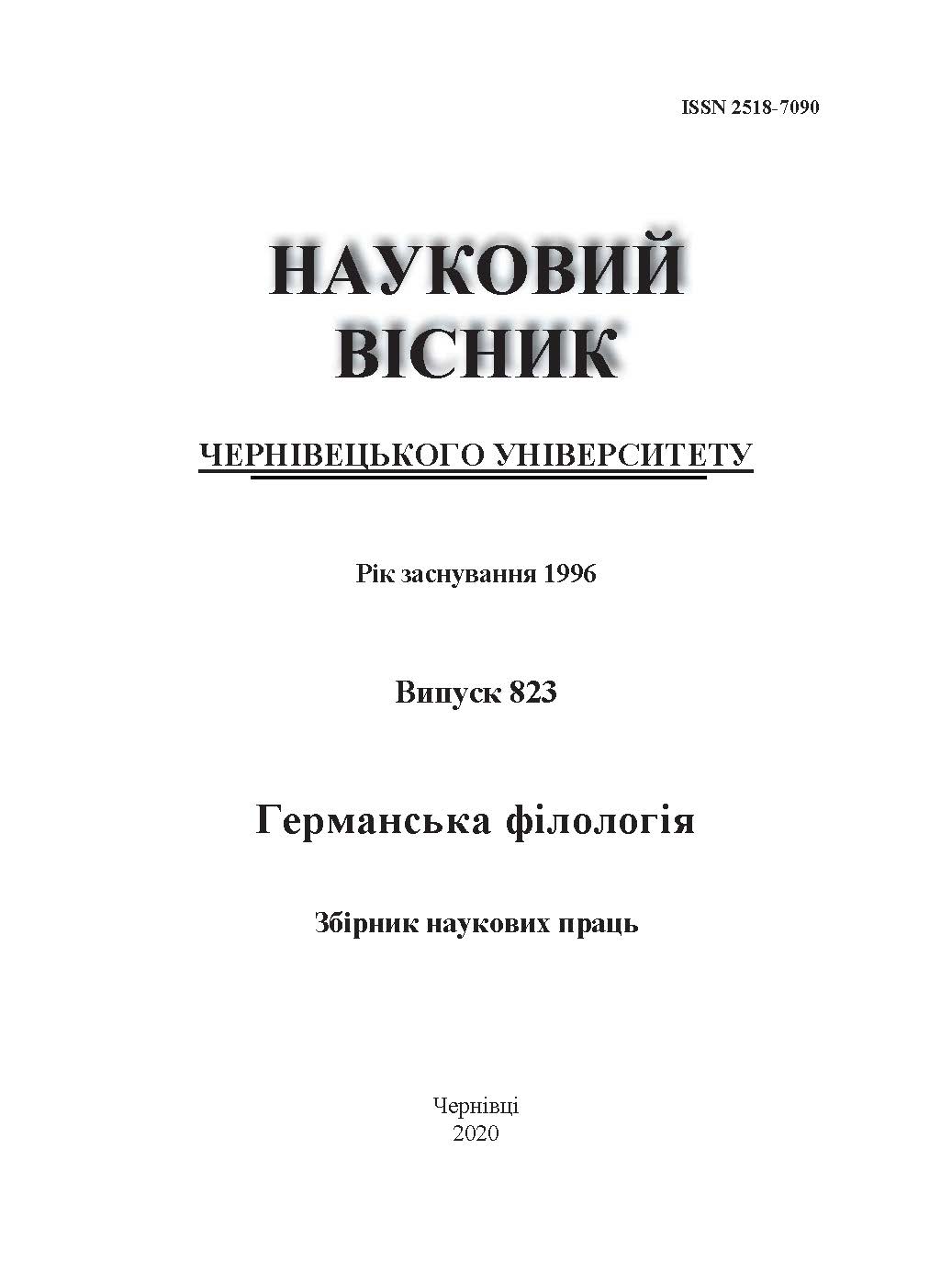ФРАЗЕОЛОГІЯ ТА ФРАЗЕОЛОГІЗМ У СКОПУСІ ЛІНГВІСТИЧНИХ СТУДІЙ
DOI:
https://doi.org/10.31861/gph2020.823.9-15Keywords:
фразеологізм, фразеологія, ідіома, теорія еквівалентності, стійкістьAbstract
The article deals with the basic approaches to the interpretation of terms «phraseology», «phraseologism». It is analysed main peculiarities, that differ phraseological units from the words and the concept of phraseology is defined. The role of phraseologisms in the language has been clarified. The main features of phraseological locution has been determined. The basic criteria of selection of phraseologisms are characterized.
The author considers phraseological units as a set of partially-phrase units, phrasal verbs, stable wordcombinations and free wordcombinations. In its turn stable wordcombinations can be divided onto the phrases with no motivation– a group of words whose meaning can not be deduced by the meaning of the constituent lexemes and partial. The author considers that the words with a lack of motivation are characterized by a historical stage of development).
The approaches presented by the author allows to assume that phraseology is the science of phraseological units whose task is to study the phraseological foundation and its specific language.
In the article the author examines the importance of phraseologisms as special units of language and reveals patterns of their formation and functioning them in the language.
Downloads
References
1. Авербух К. Я. Лексические и фразеологические аспекты перевода: учебное пособие. М.: Издательский центр «Академия», 2009. 176 с.
2. Алефіренко М. Ф. Проблема фразеологічного рівня мови. Мовознавство. 1984. №5. С.42–47.
3. Амосова Н. Н. Основы английской фразеологии. Л.: Изд-во Ленингадского университета, 1963. 208 с.
4. Архангельский В. Л. Устойчивые фразы в современном русском языке: монография. Ростов на Дону, 1964. 315 с.
5. Балли Ш. Общая стилистика и вопросы французкого языка. М.: Изд-во иностранной литературы, 1955. 416 с.
6. Виноградов В. В. Основные понятия русской фразеологии как лингвистической дисциплины. Москва: Наука, 1977. С. 118–139.
7. Жуков В.П. Русская фразеология. Москва: Высшая школа, 2006. 408 с.
8. Кунин А.В. Курс фразеологии современного английского языка. Дубна: Феникс, 1996. 381 с.
9. Мокиенко В. М. Загадки русской фразеологии. Москва: Высшая школа, 2005. 257 с.
10. Смирницкий А. И. Лексикология английского языка М.: Московский Государственный университет, 1998. 260 с.
11. Телия В.Н. Русская фразеологія: семантический, прагматический и лингвокультурологический аспекты. Москва: Школа «Языки русской культуры», 1996. 288 с.
12. Шанский Н. М. Фразеология современного русского языка. Москва: Высшая школа 1985. 160 с.
13. Cambridge Idioms Dictionary./ Second ed. Britain: Cambridge University Press, 2006. 505 p.
14. Jaki S. Phraseological Substitutions in Newspaper Headlines. Amsterdam-Philadelphia: John Benjaminis, 2014. 259 p.
15. Michael McCarthy, Felicity O’Dell. English idioms in use. Cambridge: Cambridge University Press, 2002. 190 p.
16. Naciscione A. Stylistic Use of Phraseological Units in Discourse. Amsterdam-Philadelphia: John Benjaminis, 2010. 306 p.
17. Oxford dictionary of idioms. [edited by J. Siefring]. Oxford, New York: Oxford University Press, 2005. 340 p.
18. Wulff S. Rethinking Idiomacity: A Usage-Based Approach. New York: Continiuum, 2009. 240 p.





